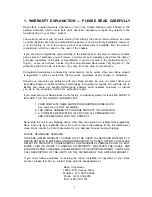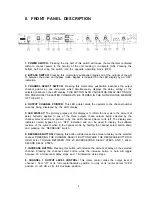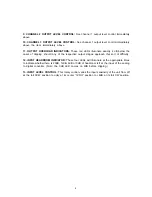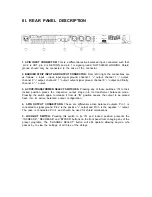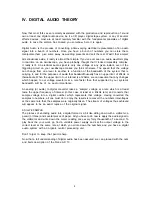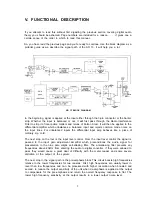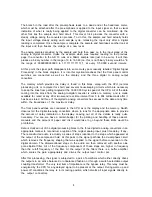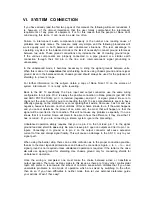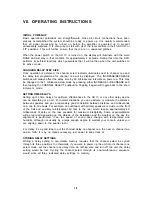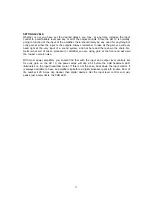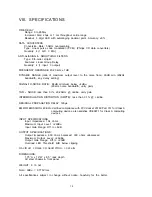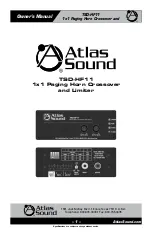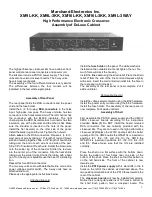
Whether or not you have set the desired delays, you may, at any time, increase the input
control to a comfortable level and any or all of the output controls. Since the AD 13 is normally
going to function at the input of the amplifier, there should rarely be any need for anything but
unity gain at either the input or the outputs. Always remember to take all the gain you will ever
need right at the very input of a sound system, and not here and there down the chain. No
matter what sort of mixer, processor or amplifier you are using, gain at the front end will yield
the lowest overall noise.
SETTING LEVELS
With most power amplifiers you should find that with the input and output level controls set
for unity gain on the AD 13, the power amps will clip a bit before the 0dB headroom LED
illuminates on the input headroom meter. If this is not the case, back down the input control. It
is always desirable to have an amplifier clip before a digital processor gets into trouble. Fact of
life number 425: Amps clip cleaner than digital devices. Set the input level control so music
peaks just barely tickle the 0dB LED.
11



